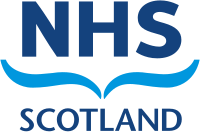
Photo from wikipedia
Objectives The NHS Health Check offers adults aged 40–74 an assessment of their risk of developing cardiovascular disease. Attendees should be offered appropriate clinical or behavioural interventions to help them… Click to show full abstract
Objectives The NHS Health Check offers adults aged 40–74 an assessment of their risk of developing cardiovascular disease. Attendees should be offered appropriate clinical or behavioural interventions to help them to manage or reduce these risks. This project focused on understanding variation in the advice and support offered to Health Check attendees. Design We conducted a realist review, assembling a diverse body of literature via database searches (MEDLINE, Embase, CINAHL, HMIC, Web of Science) and other search methods, and synthesised data extracted from documents using a realist logic of analysis. Our aim was to develop an understanding of contexts affecting delivery of the NHS Health Check and the underlying mechanisms producing outcomes related to the offer for attendees post-Check. Results Our findings demonstrate differences in how NHS Health Check commissioners, providers and attendees understand the primary purpose of the programme. A focus on screening for disease can produce an emphasis on high-volume delivery in primary care. When delivery models are organised around behavioural approaches to risk reduction, more emphasis is placed on advice, and referrals to ‘lifestyle services’. However, constrained funding and competing priorities for providers limit what can be delivered within the programme’s remit. Attendees’ experiences and responses to the programme are affected by how the programme is delivered, and by the difficulty of incorporating its outputs into their lives. Conclusions The remit of the NHS Health Check should be reviewed with consideration of what can be effectively delivered within existing resources. Variation in delivery may be appropriate to meet local needs, but differences in how the programme’s primary purpose is understood contribute to a ‘postcode lottery’ in post-Check advice and support. Our findings underline existing concerns that the programme may generate inequitable outcomes and raise questions about whether it can deliver positive outcomes for the majority of attendees. Trial registration number PROSPERO CRD42020163822
Journal Title: BMJ Open
Year Published: 2022
Link to full text (if available)
Share on Social Media: Sign Up to like & get
recommendations!